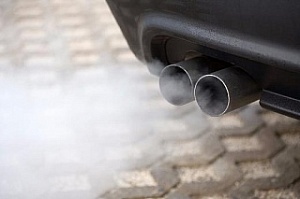Oleg Egorov, a graduate student at the Faculty of Radiophysics led by Professor Olga Voitsekhovskaya develops methods for diagnosing exhaust gases emitted during operation of jet engines, volcanic eruptions, the functioning of the industry, cars, and others. This will help to determine the quality of fuel and to prevent technology-related and natural disasters in the real-time mode.
The scientist is working with a variety of hydrogen oxide, carbon, sulfur, and nitrogen - molecules of these gases are formed as during combustion of fuel and also during oxidation processes in nature.
- If the number of sulfur dioxide molecules in the gas streams issuing from the volcano increases, the probability eruptions increases; to fix this, we can prevent a disaster - said Oleg Egorov. - Similarly, we can judge the quality of fuel, such as aviation kerosene. There are valid standards of concentrations for gas combustion products. If the exhaust gases do not match them, it means that the aircraft can not fly, otherwise, the crash may occur.
The scientist said that the interaction of exhaust gases with water vapor contained in the air, leading to the formation of acid rain, so continuous monitoring of emissions is important for the solution of environmental problems.
Now Oleg Egorov develops physical and mathematical models describing the variety of absorption of the gases. This is the length and intensity of optical radiation after passing through the exhaust gas molecule. He examines the variety of absorption in the range from room temperature (296 K) to high temperatures (1000 K) for single gases and their mixtures.
The methods developed by the TSU scientist can be used in the creation of the device, remotely registering the spectral characteristics of exhaust gases and determining the quality of automobile fuel, the operation of industrial plants, jet engines, and others.

